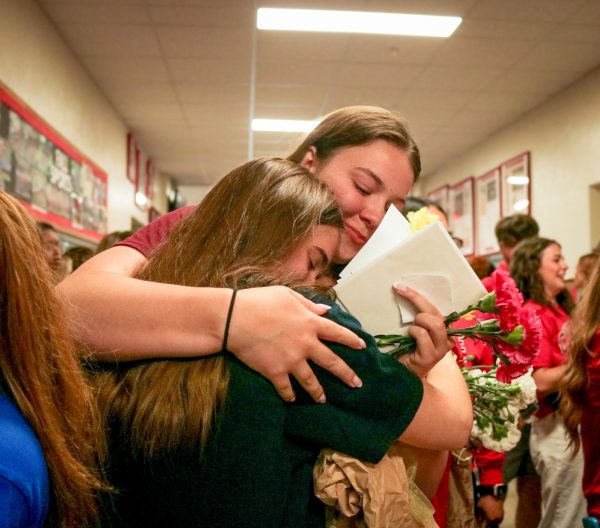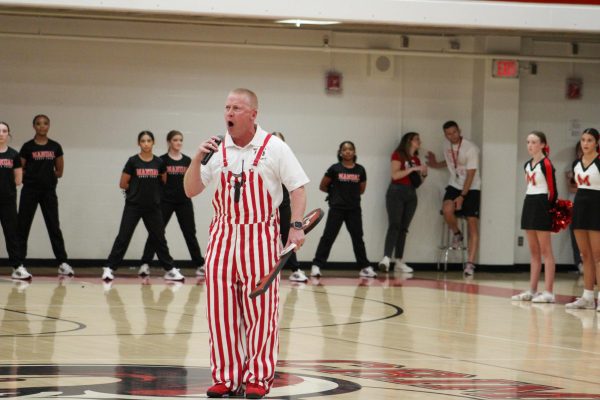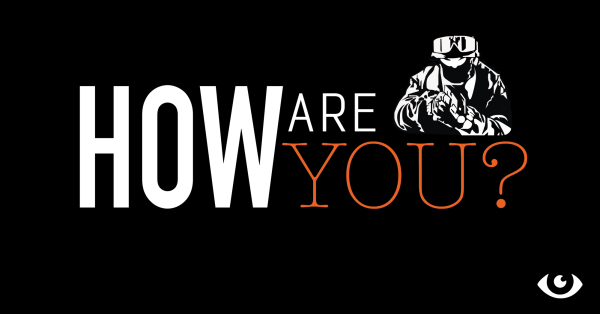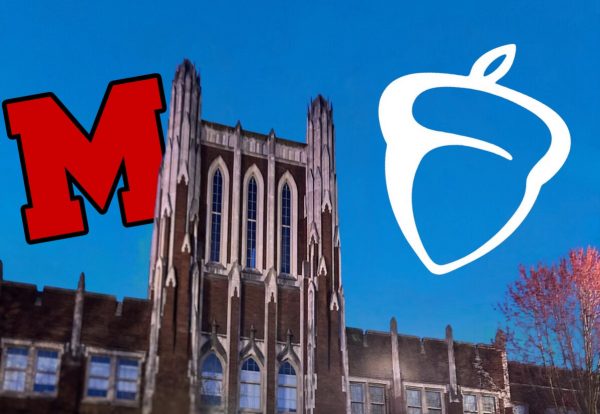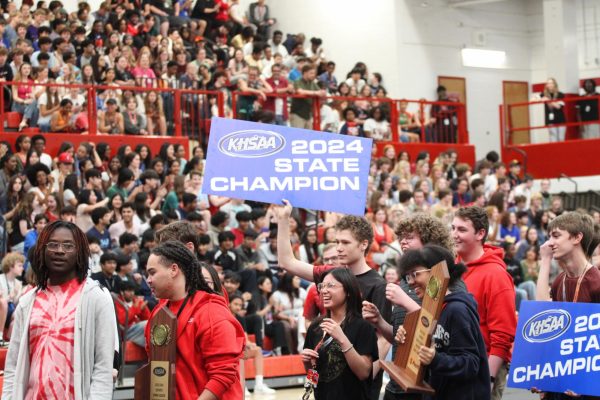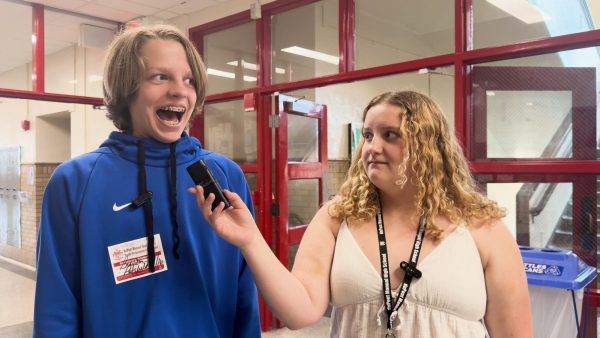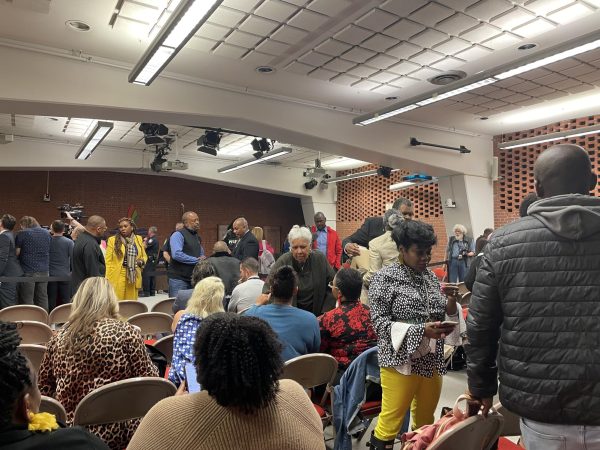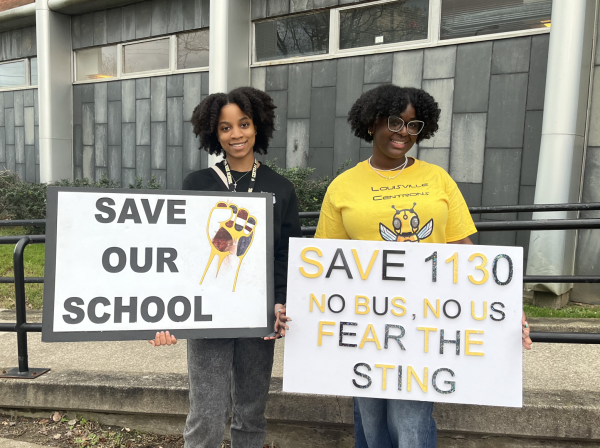Sophomore classes and scheduling advice
Featured Image Citation: “Textbooks in the Curriculum Collection” by University of Illinois Library is licensed under Creative Commons Attribution-NoDerivs 2.0 Generic. No changes were made to the image. Use of this photo does not indicate photographer endorsement of this article.
March 12, 2019
In the second semester of each school year, students will fill out and submit their course request forms for the next school year. While the process may seem overwhelming and you may hear a lot of stories about the classes and/or stress sophomore year may bring, here’s an overview of the core content classes to consider when the time comes.
English
English is required all four years of high school, but unlike some subjects students can start taking Advanced Placement (AP) English with AP Seminar. Seminar focuses on creating presentations, speeches and essays using real world topics as their focus. While other English classes may look at pieces of literature like famous plays of classics, this course focuses on more real world analysis like breaking down speeches or documents and presenting them to their peers.
This course does require an application and the prerequisites of AP Human Geography (APHG) and Advanced Program English One, and while you don’t have to take APHG, it’s very unlikely for someone to be chosen with the limited space. If denied a spot, students will automatically be put in Advanced Program English Two.
Advanced, unlike Seminar, goes over classic pieces of literature such as George Orwell’s “1984” and Maya Angelou’s “I Know Why the Caged Bird Sings,” but the overall organization of the classroom depends on who their teacher is. In addition to going through these texts, students will learn more about grammar and sentence structure, building off of the content taught in freshman year.
In comparison to Advanced, Honors English Two still focuses on the same content but it’s not as challenging as Advanced is. Famous texts and grammar are still at the heart of the class but if students are looking for an easier English class this is a good option for them.

Math
Unlike English, math is a little more complicated with the wording of each course. For students that took Advanced Program Geometry during their freshman year, they will go on to take Advance Program Algebra Two during their sophomore year. If a student took Algebra One during their freshmen year, they have the option to choose between Geometry, Honors Geometry or Advance Program Geometry.
If a student is looking for a bit more of a challenge, Honors Geometry would best fit them if they’re taking geometry or doubling up on Geometry and Algebra Two to take Pre-Calculus their junior year. Doubling up is especially common in math when a student wants to take their knowledge further and possibly take a math class that could earn them college credit.
In terms of the two Geometry courses, Geometry is easier in the way that Honors English is to Advanced English. While both courses will cover shapes, volume, lines and more along that general topic, Honors Geometry will go more in-depth and will prepare students for Honors Algebra Two, should they not choose to double up for the upcoming years.

Social studies
Students are required to take three years of a social studies, three years of a science and depending on your magnet, two to three years of a foreign language. If students did not take a geography course last year it is highly suggested that they take a world history class their sophomore year and students who did take a geography class should continue their studies of the world. There are four main options for social studies: Honors World Civilizations, Advanced Program World Civilizations, Advanced Placement World History (AP World History) or Advanced Placement European History (AP European History).
Starting at the more rigorous courses, AP World History and AP European History are the harder classes but they allow students the chance to earn college credit. AP World History covers civilizations going back to 8000 B.C.E up to present day, making it quite a bit to learn about. Students receive homework that may take anywhere from thirty minutes to multiple hours in addition to projects and classwork.
If that seems intimidating but the interest to take an AP history class is there, AP Euro. may be more your speed. AP European History covers European history starting in the 1450s until present day, making the amount of content a bit less than APWH. It covers events from the Renaissance and up until present day. Both European History and World History prepare students to take the AP tests in May as well as give students experience and tips for analyzing historical documents and writing about events with historical context. These classes require students to have a deep understanding of the content, as the tests, quizzes and worksheets are stimulus based.
If AP classes seem too challenging or too much to take on, Advance Program World History and Honors World Civilizations are available options too. These classes cover world history from the 1500s until present day and discuss the key points about civilizations, including their economy, politics, culture and the cause and effects of interaction between civilizations. Like the AP History classes, students will analyze and research on the civilizations they learn about to have a thorough understanding of their place in the world.

Science
Like social studies, only three science credits are required for students to graduate which means if students didn’t take physics or biology their freshman year, this will be the year to start. This subject is similar to English and Math in terms of the classes building off of one another, so if students took biology their freshman year it is recommended they take chemistry and if a student took physics, they are recommended to take biology.
In Advanced Chemistry, students will work both by themselves and with other people to develop a deeper understanding of the elements that make up our world and how those elements react and interact to one another, atomic structure and theory and more. Students will conduct experiments and work together to develop their understanding of the content in addition to homework and quizzes that will test the student of their knowledge.
On the other hand, Honors Biology will teach students about the foundation of life on earth. From the inner workings of the cell cycle to genetics, students should leave the class knowing more about the complex workings of how plants and animals survive on a daily basis. Depending on the teacher, students may have to complete projects, may be given many worksheets and may have to take many tests.
Due to the fact Honors Biology and Advanced Chemistry directly build off of what students take their freshman year, there is no graphic comparing and contrasting them.
Languages
Latin, German, French and Spanish are offered to students to complete their required language credits. While the state requires two years of a language to be taken, students should take into consideration their magnet and if they are looking into specific colleges because some may require three or four years of a language. At Manual, J+C, VA and YPAS require two years of a language to be taken while MST and HSU require three years of a language.
If a student hasn’t started their language credits, it is highly suggested they start that as soon as possible to ensure they meet both the state’s requirements and their magnet’s. In addition to Latin, German, French and Spanish, American Sign Language (ASL) is also an available course but only as an elective and therefore won’t count towards these required language credits.
Online courses
To graduate high school, students must have credits from a variety of topics and with Manual’s magnet requirements, it may be hard to fit them all into their four years while also taking classes they find interesting. For some subjects, JCPSeschool is available for students to complete online throughout the school year. Some popular courses Manual students take include Health, Spanish (the only language available online), science courses and Humanities.
While the information taught in some of these courses is debated between students as to whether it is helpful or not, they will still allow students to receive credits they need to graduate. To enroll in these courses, students should contact their counselors and will have 90 days to complete their course but extensions may be granted.
Doubling up
Some students may have taken high school leveled classes in middle school that carry over when they attend high school, a popular example of this is students taking Algebra One in eighth grade then taking Advanced Geometry during their freshman year. Others may not be in that position but if a students wishes to pursue more advanced classes such as a higher math class or if they wish to double up, that is an available option.
Doubling up would be a student taking their current year course as well as the class they typically would take in the next school year. Using the math example again, if a student took Algebra One their freshman year, they could then double up and take both Geometry and Algebra Two their sophomore year. Students should look into this as they would with any other scheduling decision and decide if the subject they wish to double up in would make sense or confuse and complicate their knowledge of the subject.
Advice and things to be cautious of
While not everyone has the same experience throughout their four years of high school, there is a general agreement among many of the upperclassmen that sophomore year is much more challenging than freshman year. As a current sophomore, here is a list of things to be cautious of both during the scheduling process and during the school year.
- Choose classes based on what you like and don’t feel pressured into taking classes you don’t believe you would do well in. If you feel comfortable taking on a few AP classes, good for you, but don’t schedule an impossible schedule where you will have no free time.
- Try to make room for a study skills. While there are some amazing classes available, a study skills will both be a time for you to work on just about anything and is one less grade to worry about maintaining.
- Sophomore classes are generally harder than freshman classes. The difference between AP and Advanced or Advanced and Honors could be huge.
- If you’re considering doing an AP class and you are doing it for the sake of the credit, check with colleges you may be looking at to see if they will take it. Some colleges will accept only certain credits.
- If you have an open class slot, consider looking at other magnet’s elective courses. Each magnet has specific classes available to anyone and it may be a nice break from your required classes.
- Time management skills may make or break your year. If you don’t write in your agenda or don’t write anything down, this might be a good time to pick that habit up, especially if you tend to forget when assignments are due.
- Classes will vary depending on your teacher for each subject. The information above is a general overview of the courses but teachers will decide how they want their classes to be run and it may change.
- If you can strategically plan your schedule to your strengths and weaknesses you’ll be set. Sophomore year can be a hard year mentally so it’s best to put yourself first. Don’t be afraid to admit when things are too much and talk with your counselor either.
Featured Image Citation: “Textbooks in the Curriculum Collection” by University of Illinois Library is licensed under Creative Commons Attribution-NoDerivs 2.0 Generic. No changes were made to the image. Use of this photo does not indicate photographer endorsement of this article.









